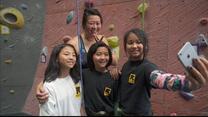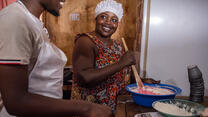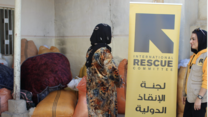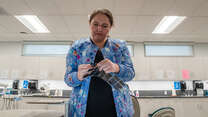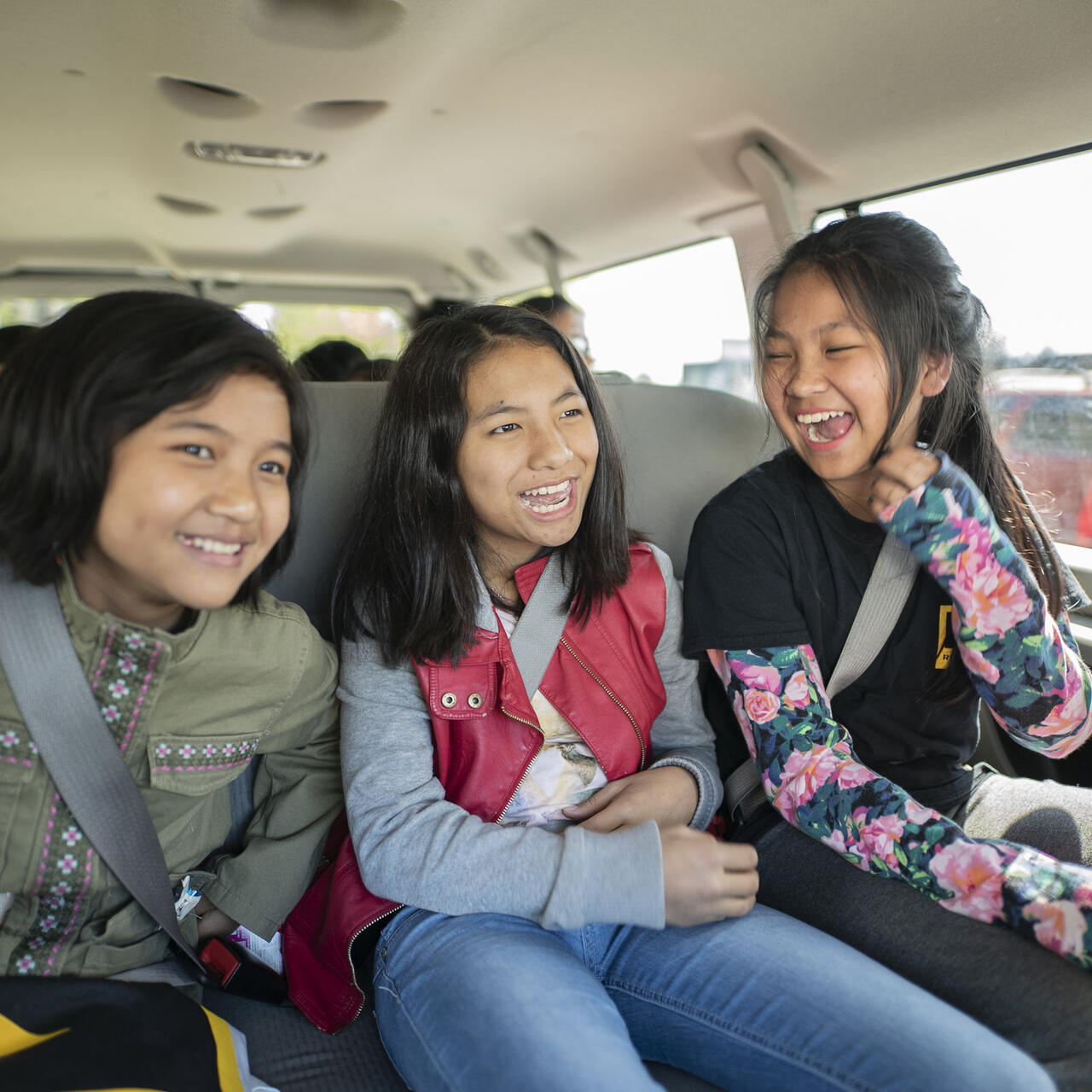
For more than 100 years, The New York Times Neediest Cases Fund has assisted thousands of people in need. In 2016, the International Rescue Committee became the first global organization to be supported by the fund.
During this year's campaign, The New York Times has published the following stories of families and individuals who benefited or may benefit from the fund.
In Lebanon, she answers the call of refugee children in need
Hundreds of refugee children work on the streets of Lebanon to support their families. Farah Omari, a case manager in Tripoli, works with the IRC to keep these children safe. What she hears is often devastating: stories of children who have been harassed, abused or had their meager earnings stolen by adults.
“We always tell the kids, ‘If anything happens, call us,’” Omari, 32, says. “They can call us 24 hours a day. If anything happens — they get detained, arrested or the child is lost.” Meet Farah.
One of the distressing things about living in Lebanon is seeing so many Syrian children begging or selling on the street. I'm very proud to work alongside @theIRC colleagues like Farah who go the extra mile to help many desperately vulnerable families here https://t.co/zaTw3W2zLU
— Paul Donohoe (@Donohoe_P) December 27, 2018
Home and husband lost, a mother of 8 fears her sight is next
In 2013, Zina Satouf and her eight children fled Syria as civil war consumed their hometown, Aleppo. Now in Jordan, Satouf suffers from glaucoma and worries that four of her eight children, ages 9 to 22, who are disabled – may lose their eyesight too. Through the IRC, Satouf and two of her children receive free regular checkups and medicine, including colon and digestive medication that costs nearly $120 a month. Meet Zina.
The latest @nytimes Neediest Cases Appeal story spells out the challenges facing Syrian refugees struggling to afford healthcare in Jordan and captures the very difficult circumstances of Zina and her family, who receive free medical care from @theIRChttps://t.co/iiDPgkIcRb
— Marco Aviotti (@marcoaviotti) December 13, 2018
From collecting firewood for sale to forging a path in college
Nuam San, 20, was resettled by the IRC in Clarkston, Georgia five years ago from Myanmar (also known as Burma). At the time, she spoke no English and came from a country where women are expected to stay at home. Now, she is a freshman at Agnes Scott College, where she dreams of a having an important job one day—perhaps in the White House.
“I feel like I could help a lot of people have a better life, a better education,” she says, “and not lose hope in themselves.” Meet Nuam San.
Her father left to find work in Malaysia when she was a toddler; her mother cared for five children. For Nuam San, that meant gathering firewood to sell, a job she would help with after school. https://t.co/GL6729e9Ow
— The New York Times (@nytimes) December 10, 2018
In a Serbian refugee camp, women tackling a taboo topic
Mahnaz Alizadeh, 27, fled Iran with her husband and two children to take the dangerous journey to Europe, where they now live in Krnjaca refugee camp near the Serbian capital, Belgrade. Alizadeh is among some 800 women and girls who received sexual reproductive health advice or counseling from the IRC and a local partner. Meet Mahnaz.
In a Serbian refugee camp, women are tackling a taboo topic. Don’t miss this special story from IRC in Serbia on the @nytimes as part of the Neediest Cases Fund: https://t.co/3jg02EOSCT
— IRC Intl Rescue Comm (@theIRC) December 22, 2018
Bakers from Baghdad, who fled violence against Christians, pursue a sweet dream
Nael and Manar al-Najjar fell in love and opened a bakery in Baghdad, Iraq. As Catholics, though, they faced discrimination and threats of violence. When those threats turned deadly, the couple fled and sought asylum in the United States in 2014. They worked at bakeries in San Diego for three years, until they opened up their own shop with the help of the IRC.
“We wanted to make something together, something strong,” said Nael, 38. “It is my dream and my husband’s dream.” Meet Nael and Manar.
“We wanted to make something together, something strong.” The inspiring story of a refugee family who set up their own successful sweet shop in San Diego after fleeing from violence in Iraq on @nytimes: https://t.co/0PJjqnbyms
— IRC Intl Rescue Comm (@theIRC) December 25, 2018
3 young refugees have a powerful support system: each other
Cing, Cing and Cing are three friends from Myanmar who now live near Seattle with their families. They participate in a new rock climbing program organized by the IRC and Vertical Generation, a local nonprofit. Refugee children spend each week at a local gym, meeting with mentors to work on homework and practice English, before jumping on the climbing walls. Occasionally, the children experience outdoor rock-climbing excursions.
“It was amazing,” said Cing Sung, 13, who has been climbing in the program since last spring. “We made a lot of friends, and adults are really nice, and they help us do our homework.” Meet the three Cings.
3 girls from Myanmar, who share a name, a school and a new home outside Seattle, are learning to rock climb as they adjust to life in their new country https://t.co/8PSo4oihN5
— NYT National News (@NYTNational) November 17, 2018
